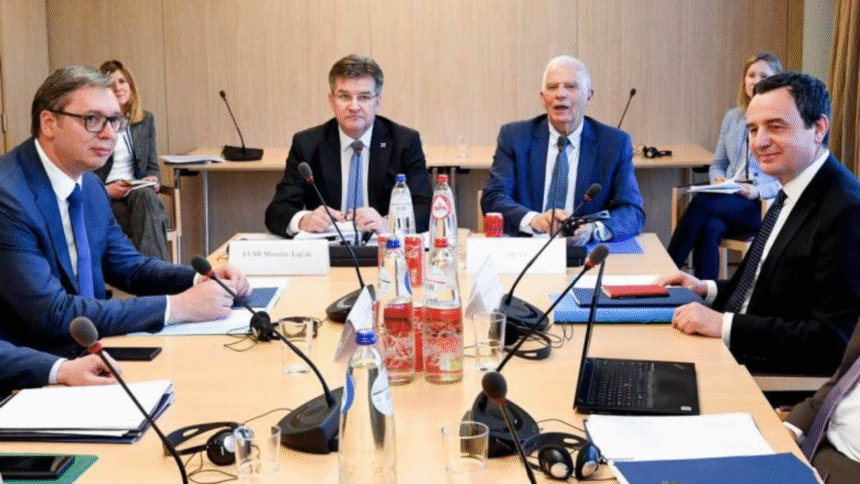Unresolved political tensions with Serbia and the fragile situation in northern Kosovo continue to negatively affect the country’s stability and its ability to fully benefit from European Union initiatives, according to a report by the United Nations Team in Kosovo. The document, which provides a comprehensive overview of Kosovo’s achievements and challenges, states that Kosovo has made significant progress over the past decade toward democratic and economic development.
Despite long-standing EU-facilitated efforts to normalize relations between the two countries, tensions between Kosovo and Serbia remain high. The report highlights that the lack of progress in dialogue has led to repeated crises in the predominantly Serb-populated north.
“Twenty-five years after the 1999 conflict ended, there has been little progress in reconciliation between Belgrade and Pristina, and among communities within Kosovo. The situation in Kosovo remains a regular item on the UN Security Council agenda. The crisis-prone nature of northern Kosovo discourages foreign investment, sustainable development, cooperation, and regional integration,” the report states.
Key Factors Blocking Dialogue
The report identifies several issues that have contributed to political gridlock and polarization:
The ongoing political deadlock over establishing the Association/Community of Serb-majority Municipalities in Kosovo;
The lack of mutual recognition between Belgrade and Prishtina;
The absence of formal signatures from either party in the 2023 Brussels and Ohrid Agreements.
It notes that the EU holds Kosovo responsible for escalating tensions in the north and imposed punitive measures in June 2023, including suspending development aid. As the largest donor to Kosovo, these EU measures have slowed down Kosovo’s efforts to achieve the 2030 Sustainable Development Goals (SDGs).
Progress and Vulnerabilities
Although Kosovo has made democratic progress—especially through free elections and peaceful political transitions—the country still faces deep social, economic, and environmental vulnerabilities.
“Progress toward meeting the Sustainable Development Goals (SDGs) has been slow and uneven. Ongoing challenges include reducing poverty, improving healthcare and education, achieving gender equality, tackling the triple planetary crisis (climate change, biodiversity loss, and pollution), ensuring productive employment and decent work, and promoting peace, justice, and strong institutions,” the report says.
It also notes that the lack of data for many SDG indicators has hindered accurate assessments and policy responses.
Demographic Trends and Labor Market Challenges
The 2024 Population and Housing Census showed an 8.8% population decline compared to 2011—from 1,739,825 to 1,602,515 people—mainly due to emigration, especially of young people. The median age increased from 30 years (in 2011) to 35 years (in 2024), while the share of people over age 65 rose from 6.7% to 10.9%, indicating an aging trend that demands stronger healthcare, education, and social protection systems.
Nevertheless, Kosovo still has one of the youngest populations in Europe.
Yet, only 40.7% of the working-age population participates in the labor force. Female participation is the lowest in Europe at 24.2%, compared to 57.8% for men. Youth unemployment stands at 17.3%, including 22.8% for women and 14.4% for men.
“Many jobs, particularly in the informal sector, offer no adequate social protection, leaving workers vulnerable to poor working conditions, low wages, and job insecurity,” the report notes.
Even though poverty has declined, the rate of reduction has slowed in recent years, and poverty data is limited. Wage increases have not significantly improved the well-being of families living below the poverty line.
Energy Sector and Climate Risks
Kosovo’s energy sector relies heavily on lignite (brown coal), which causes severe environmental degradation and air pollution, especially in urban areas.
While Kosovo has started transitioning to renewable energy—primarily through liberalization of the energy market—significant investments are still required to ensure a sustainable shift.
“Climate change impacts, such as rising temperatures, floods, and droughts, threaten Kosovo’s socio-economic stability, especially in rural areas dependent on agriculture,” the report concludes.







